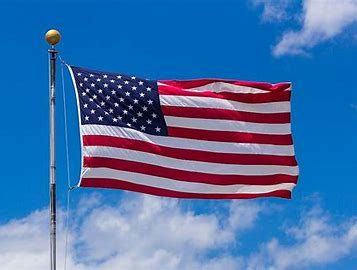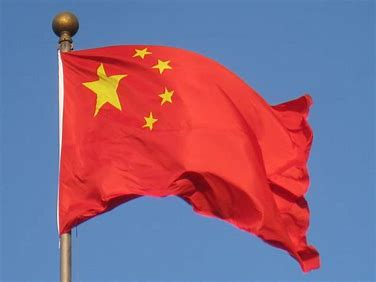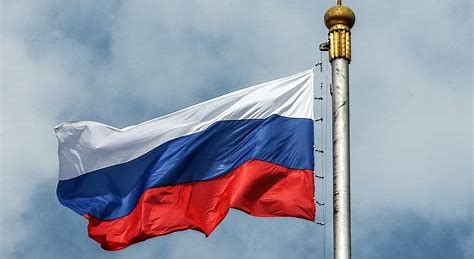Photo AI
Last Updated Sep 26, 2025
Great powers Simplified Revision Notes for A-Level Edexcel Politics
Revision notes with simplified explanations to understand Great powers quickly and effectively.
203+ students studying
30.2.1 Great powers
Introduction to State Power Classifications
In international relations, states are often classified based on their relative power and influence in the global system. These classifications include terms such as superpowers, great powers, middle powers, and small powers. The concept of a Great Power is particularly important as it refers to states that have significant military, economic, and diplomatic influence on a global scale.
Definition of Great Power
- Great Power: A great power is a sovereign state that possesses the ability to exert significant influence or project power on a global scale. This influence typically extends beyond regional boundaries and includes substantial military, economic, and political capabilities. Great powers are often key players in international relations and have the capacity to shape global events, norms, and policies.
Characteristics of Great Powers
1. Military Capabilities
- Strong Military Forces: Great powers maintain large and advanced military forces, including a combination of a powerful army, navy, and air force. They typically possess significant conventional and nuclear capabilities, which allow them to project power globally.
- Example: The United States and Russia are often considered great powers due to their extensive military arsenals, including nuclear weapons, and their ability to deploy forces worldwide.
- Global Reach: The ability to deploy military forces across the globe is a defining characteristic of a great power. This includes having military bases in strategic locations around the world and the logistical capacity to sustain military operations far from home.
- Example: The United States has a global network of military bases, particularly in Europe, Asia, and the Middle East, which supports its global power projection.
- Technological Superiority: Great powers invest heavily in military technology, including advanced weapons systems, intelligence capabilities, and cyber warfare tools. This technological edge allows them to maintain a qualitative advantage over potential adversaries.
- Example: The development of fifth-generation fighter jets like the F-35 by the United States showcases its commitment to maintaining technological superiority in the military domain.
2. Economic Power
- Large and Diversified Economy: Great powers possess large, diverse economies with high GDPs. Economic power provides the resources necessary to support a strong military, influence global trade, and provide foreign aid or investment.
- Example: China's rapid economic growth has elevated it to great power status, enabling it to invest heavily in military modernization and global infrastructure projects like the Belt and Road Initiative.
- Control Over Global Trade and Finance: Great powers often dominate global trade and finance, shaping international economic policies and institutions. Their currencies may also be widely used in international transactions.
- Example: The United States exerts significant influence over global finance through its control of institutions like the International Monetary Fund (IMF) and the World Bank, as well as the widespread use of the U.S. dollar as the world's reserve currency.
- Economic Leverage: Great powers can use their economic might as leverage in international negotiations, sanctions, or economic aid, influencing the behavior of other states.
- Example: The European Union, with its large single market, can impose economic sanctions that have a significant impact on target states, as seen in its sanctions on Russia following the annexation of Crimea.
3. Diplomatic Influence
- Leadership in International Organizations: Great powers typically play leading roles in international organizations, such as the United Nations, World Trade Organization (WTO), and G7/G20. They often have permanent or significant positions within these bodies, allowing them to shape global policies and norms.
- Example: The United States, as a permanent member of the United Nations Security Council (UNSC), has the power to influence key international decisions, including the use of veto power.
:::
- Wide Network of Alliances: Great powers maintain extensive networks of alliances and partnerships, which enhance their global influence and provide support in times of conflict or crisis.
- Example: NATO is a cornerstone of U.S. military and political alliances, reflecting the U.S.'s ability to build and lead coalitions of like-minded states.
- Mediation and Conflict Resolution: Great powers often act as mediators in international conflicts, using their influence to negotiate peace agreements or resolve disputes. Their involvement is often seen as crucial for the success of international diplomacy.
- Example: Russia has played a significant role in mediating conflicts in Syria and Ukraine, reflecting its status as a great power with vested interests in these regions.
4. Cultural and Ideological Influence
- Promotion of National Ideologies: Great powers often promote their political and economic ideologies globally, seeking to shape the international order according to their values and interests. This can include the spread of democracy, capitalism, or socialism.
- Example: During the Cold War, the United States promoted democracy and capitalism, while the Soviet Union promoted communism, leading to a global ideological struggle.
- Cultural Exports: Great powers often have a significant cultural impact on the world through the export of media, education, language, and lifestyle. This cultural influence can shape global perceptions and enhance a state's soft power.
- Example: The global spread of American culture through Hollywood, fast food chains, and technology companies like Apple and Google has reinforced the United States' status as a great power.
5. Ability to Influence Global Norms and Standards
- Setting Global Agendas: Great powers have the ability to set global agendas, whether in terms of security, economic policy, or human rights. Their initiatives can lead to the creation of new international laws, treaties, or institutions.
- Example: The establishment of the Bretton Woods institutions (IMF, World Bank) after World War II, largely driven by the United States, set the framework for the global economic order that persists today.
- Normative Power: Great powers can shape international norms and standards, influencing what is considered acceptable behavior in international relations. This can include norms around warfare, human rights, trade, and environmental protection.
- Example: The European Union has been influential in promoting environmental standards and human rights norms through its policies and international agreements.
Examples of Great Powers
1. The United States
- Military: The U.S. maintains the world's most powerful military, with a defense budget that surpasses that of the next several countries combined. Its global network of bases and advanced military technology ensure its ability to project power worldwide.
- Economic: The U.S. has the largest economy in the world, leading in technology, finance, and innovation. The U.S. dollar is the global reserve currency, and U.S. economic policies have far-reaching effects.
- Diplomatic: The U.S. plays a leading role in global governance through its membership and influence in international organizations like the UN, NATO, and the WTO.
- Cultural: American culture is pervasive globally, with its movies, music, technology, and lifestyle having a profound influence on other societies.

2. China
- Military: China has rapidly expanded and modernized its military, becoming a formidable power in the Asia-Pacific region with growing global reach.
- Economic: China is the world's second-largest economy, and its Belt and Road Initiative reflects its ambition to reshape global trade routes and economic relations.
- Diplomatic: China has increased its influence in international organizations, advocating for reforms that reflect its interests, and has forged strong bilateral relations across the Global South.
- Cultural: Through initiatives like Confucius Institutes and the global promotion of Chinese media and language, China is expanding its cultural influence.

3. Russia
- Military: Russia retains significant military power, particularly in its nuclear arsenal, and has demonstrated its ability to project power in its near abroad and in conflicts like Syria.
- Economic: While Russia's economy is smaller and more dependent on natural resources, its control over energy supplies, especially to Europe, gives it significant leverage.
- Diplomatic: Russia maintains influence through its role in the UNSC and its strategic alliances, particularly in the former Soviet states and the Middle East.
- Cultural: Russia promotes its culture and values through state-run media like RT, and its history and literature are well-known worldwide.

4. European Union (EU)
- Military: While the EU itself does not have a standing army, several member states (such as France and the UK) possess significant military capabilities, and the EU coordinates on security issues.
- Economic: The EU is one of the largest economic entities in the world, with significant influence over global trade, regulations, and financial markets.
- Diplomatic: The EU plays a leading role in international diplomacy, often acting as a bloc in international negotiations on trade, climate change, and human rights.
- Cultural: The EU promotes European values and standards globally through its policies, cultural programs, and educational exchanges.
The Role of Great Powers in the International System
1. Shaping the International Order
- Global Policymaking: Great powers often lead in the creation of international norms, laws, and institutions. They shape the rules of the game in international relations, often ensuring these frameworks align with their interests.
- Example: The United States and its allies played a central role in establishing the post-World War II international order, including institutions like the UN, NATO, and the World Bank.
2. Balancing Power Dynamics
- Power Balancing: Great powers engage in balancing strategies to prevent any one state from becoming too dominant. This can include forming alliances, building military capabilities, and engaging in diplomacy.
- Example: The Cold War era was marked by the balance of power between the United States and the Soviet Union, each leading opposing blocs of states.
3. Conflict and Cooperation
- Conflict Resolution: Great powers often act as mediators in global conflicts, using their influence to broker peace agreements and prevent escalation.
- Example: The United States has often played a role in mediating peace processes in the Middle East, such as the Camp David Accords between Egypt and Israel.
- Cooperation on Global Issues: Great powers are often at the forefront of cooperative efforts to address global challenges, such as climate change, terrorism, and pandemics.
- Example: The Paris Agreement on climate change was significantly shaped by the negotiations and commitments of great powers like the U.S., China, and the EU.
Conclusion
Great powers are central to the functioning of the international system, possessing the military, economic, diplomatic, and cultural capabilities to influence global events and shape the international order. While the distribution of power among states can shift over time, the concept of great power remains crucial for understanding global dynamics, including conflict, cooperation, and the creation of international norms and institutions. These states are often both the architects and the enforcers of the rules that govern international relations, making their actions and policies critical to the stability and evolution of the global system.
500K+ Students Use These Powerful Tools to Master Great powers For their A-Level Exams.
Enhance your understanding with flashcards, quizzes, and exams—designed to help you grasp key concepts, reinforce learning, and master any topic with confidence!
40 flashcards
Flashcards on Great powers
Revise key concepts with interactive flashcards.
Try Politics Flashcards4 quizzes
Quizzes on Great powers
Test your knowledge with fun and engaging quizzes.
Try Politics Quizzes29 questions
Exam questions on Great powers
Boost your confidence with real exam questions.
Try Politics Questions27 exams created
Exam Builder on Great powers
Create custom exams across topics for better practice!
Try Politics exam builder16 papers
Past Papers on Great powers
Practice past papers to reinforce exam experience.
Try Politics Past PapersOther Revision Notes related to Great powers you should explore
Discover More Revision Notes Related to Great powers to Deepen Your Understanding and Improve Your Mastery
96%
114 rated
State power classifications
Superpowers, including the USA
490+ studying
191KViews96%
114 rated
State power classifications
Emerging powers, including BRICS (Brazil, Russia, India, China and South Africa)
309+ studying
181KViews